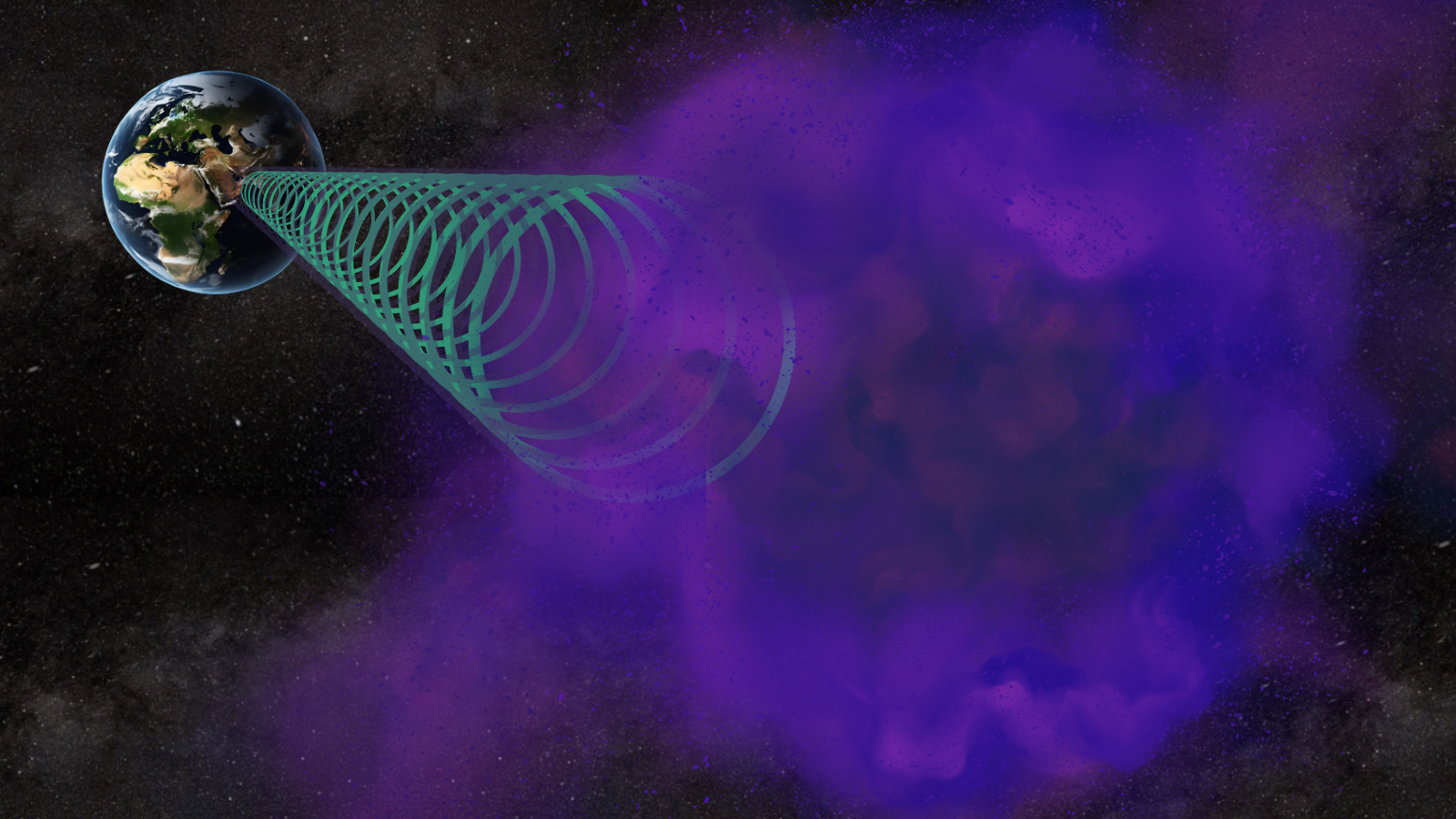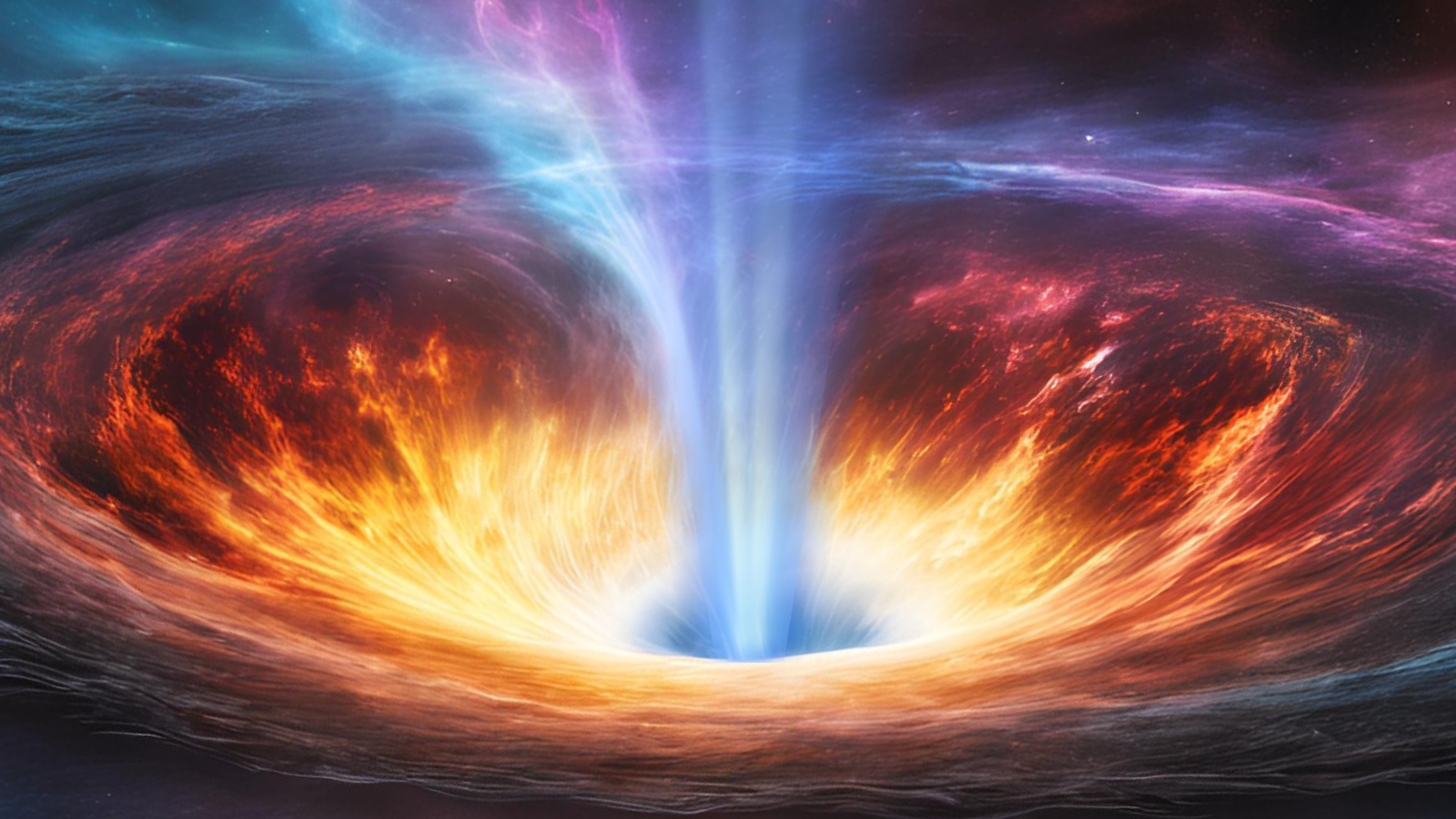Dark matter, the elusive search: Latest discoveries and news

Roughly 80 percent of the mass of the universe appears to be dark matter: an invisible material that seems to interact with ordinary matter only through gravity, without emitting light or energy. Scientists cannot detect dark matter directly and don't yet know what it's made of, but they track its influence based on the motions of stars and galaxies. The presence of dark matter is necessary to explain the universe's current structure.
Related Topics: The Big Bang Theory, Black Holes, The Theory of Relativity in Space, Gravitational Waves
Join our Space Forums to keep talking space on the latest missions, night sky and more! And if you have a news tip, correction or comment, let us know at: community@space.com.
Latest about dark matter

Astronomers discover dark matter 'bridge' linking colliding galaxies: 'This is the missing piece we've been looking for.'
By Robert Lea published
A massive clump of dark matter in the Perseus galaxy cluster is linked to its core by a bridge of dark matter, evidence of a history of mergers.

Ultralight dark matter may have helped monstrous black holes form in the early universe
By Paul Sutter published
The infant universe's population of huge black holes could owe itself to ultralight dark matter, scientists say.

Ghostly galaxy without dark matter baffles astronomers
By Sharmila Kuthunur published
Astronomers have stumbled upon yet another ghostly galaxy that appears to be devoid of dark matter, the elusive stuff that makes up most of the material universe.

A 'cosmic car radio' could help scientists tune in to dark matter within the next 15 years
By Robert Lea published
Scientists have developed a cosmic car radio that could tune into the frequency of axions, a prime dark matter suspect.

Matter-spewing 'singularities' could eliminate the need for dark energy and dark matter
By Robert Lea published
A new cosmic model suggests that singularities could briefly pop into existence, spewing matter and energy into the cosmos, negating the need for dark energy and dark matter.

Some dark matter haloes could roll through the universe like hollow cosmic Easter Eggs
By Robert Lea published
The universe could be packed with dark matter haloes that have no galaxy fillings.

What is dark matter made of? New study bolsters case for 'primordial' black holes
By Paul Sutter published
In the early universe, primordial black holes could acquire a "dark charge," giving them an unnaturally long lifetime, new research suggests. This makes them an interesting candidate for dark matter.

What would happen if the Milky Way's black hole erupted? This distant galaxy paints a terrifying picture
By Robert Lea published
The observation of titanic jets emerging from the supermassive black hole at the heart of a distant galaxy could be a grim prediction of the Milky Way's future.

Mysterious phenomenon at the heart of the Milky Way could point to new dark matter suspect. 'We may have been overlooking its subtle chemical effects on the cosmos.'
By Robert Lea published
Strange events at the heart of the Milky Way could point toward a new dark suspect that annihilates to influence the chemistry of the cosmos.

New recipe for gravity could unite Einstein's general relativity with quantum physics — and probe the dark universe
By Robert Lea published
If gravity arises from entropy, scientists could unite Einstein's general relativity with the quantum realm while shedding light on dark matter and dark energy.
Get the Space.com Newsletter
Breaking space news, the latest updates on rocket launches, skywatching events and more!
